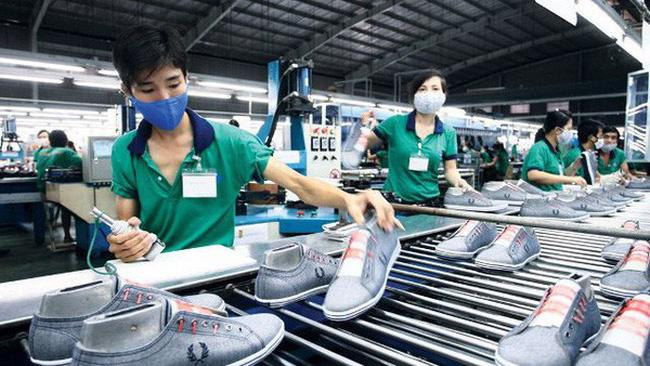Vietnam’s electronics industry has seen impressive growth, becoming a key player in global manufacturing. While major companies like Samsung, Intel, and Foxconn dominate the sector, their impact extends beyond just manufacturing.
Let’s explore the economic, technological, and strategic contributions of five of the top components and assembly lines for electronics in Vietnam, analyzing their role in the local economy, the workforce, and Vietnam’s increasing integration into the global supply chain.
Vietnam’s Top Electronics Manufacturers
The growing presence of these five leading electronics manufacturers in Vietnam highlights the country’s increasing importance in global electronics production.
Samsung Electronics Vietnam
Samsung has been at the forefront of transforming Vietnam’s electronics manufacturing capabilities. Not only does the company produce a vast array of high-tech products, including smartphones, semiconductors, and home appliances, but it also drives innovation in the country. Through extensive research and development (R&D) investments, Samsung has nurtured local talent, enhancing the technical skillset of Vietnam’s workforce.
The company’s extensive training programs and partnerships with Vietnamese universities have boosted the country’s ability to support high-tech industries. Samsung’s contributions are not limited to production; they extend to elevating Vietnam’s technological expertise and creating highly skilled jobs in engineering, design, and manufacturing.
Samsung also has a subdivision called Electro-Mechanics supporting high-tech industries with the production of electronic components such as capacitors, resistors, and connectors. These components are essential in various industries, including consumer electronics, automotive manufacturing, and telecommunications.
Samsung SDI is also leading the charge of green energy solutions, with its focus on battery production, is helping Vietnam become a critical player in the global electric vehicle (EV) and renewable energy markets.
LG Electronics Vietnam
LG Electronics has been a key player in introducing green and sustainable manufacturing practices to Vietnam. With a focus on energy-efficient appliances and the production of eco-friendly products like solar panels, LG is helping to position Vietnam as a leader in green manufacturing. This commitment aligns with Vietnam’s broader goals of reducing its carbon footprint while expanding its electronics sector.
LG’s emphasis on sustainability also plays into the country’s role as a supplier of eco-conscious electronics to international markets, particularly in Europe and North America.
Intel Vietnam
Intel’s assembly and testing facility in Ho Chi Minh City is a significant player in Vietnam’s growing semiconductor industry. The company not only contributes to global supply chains but also plays a crucial role in upgrading Vietnam’s manufacturing infrastructure. Intel’s investment in automation and its cutting-edge semiconductor production techniques provide a model for other industries in Vietnam, highlighting the importance of technological innovation and precision manufacturing.
Intel’s continued presence strengthens Vietnam’s positioning as an emerging semiconductor hub in Southeast Asia.
Panasonic Vietnam
While Panasonic is widely known for its consumer electronics, its influence in Vietnam extends into various other sectors, including automotive and industrial electronics. The company’s investment in batteries for electric vehicles (EVs) and renewable energy systems demonstrates its commitment to the future of electronics.
By entering the automotive and energy sectors, Panasonic not only diversifies Vietnam’s electronics production but also positions the country as a future leader in green technology.
Foxconn Vietnam
As one of the largest manufacturers of electronic components globally, Foxconn has been pivotal in shaping Vietnam’s position within the international supply chain. The company’s partnership with leading tech companies like Apple has created a substantial manufacturing ecosystem within Vietnam.
This has had a significant impact on the local economy, creating thousands of jobs in various regions of the country. Foxconn’s operations also help integrate Vietnam into the broader global electronics supply chain, reinforcing the country’s role as a vital link in the global tech ecosystem.
Broader Impacts on Vietnam’s Economy and Society
Vietnam’s electronics industry has not only propelled the country into the global manufacturing spotlight but also catalyzed significant economic and social transformations.
Job Creation and Workforce Upskilling
Global tech giants like Samsung and Intel have established partnerships with local universities, creating a steady pipeline of highly trained workers. These collaborations foster technology transfer, elevating Vietnam’s workforce from low-skilled assembly jobs to more advanced engineering roles. As a result, the local labor force is increasingly equipped with skills in high-tech fields, contributing to both individual career development and the country’s broader economic progress.
Infrastructure Development
The rise of industrial zones in northern provinces such as Bắc Ninh and Thái Nguyên has sparked substantial improvements in transport and utility networks. These upgrades benefit not only the electronics sector but also a wide range of industries, stimulating regional development. Better infrastructure leads to enhanced connectivity and economic integration, creating a positive ripple effect across various sectors of the economy.
Export-Driven Growth
Electronics have become a cornerstone of Vietnam’s export economy. Samsung alone accounts for more than half of global smartphone shipments, contributing significantly to the country’s export earnings. This export dominance strengthens Vietnam’s trade relationships, particularly with major markets like the U.S. and EU, and positions the country as an essential player in global supply chains.
Sustainability
Vietnam’s electronics sector is increasingly aligning with global trends toward sustainability. Companies like LG and Panasonic have implemented eco-friendly manufacturing practices, positioning Vietnam as a hub for green production. These initiatives not only cater to the growing demand for environmentally responsible products but also enhance Vietnam’s reputation in the global market as a sustainable manufacturing destination.
Challenges and Future Opportunities
While Vietnam’s electronics sector continues to grow, it faces several challenges that could affect its future prospects. Supply chain bottlenecks during peak production periods, rising labor costs, and competition from other emerging electronics hubs such as Indonesia and Malaysia are among the key obstacles.
To maintain its growth trajectory, Vietnam must prioritize investments in education and technical training, enhance its infrastructure and logistics networks, and implement policies that attract high-tech foreign direct investment (FDI).
By driving innovation, supporting sustainable manufacturing practices, and creating high-skilled jobs, these companies are helping to position Vietnam as a central hub in the global electronics supply chain. As the industry continues to expand, Vietnam’s role as a manufacturing powerhouse will only strengthen, ensuring its place in the future of global electronics production.


